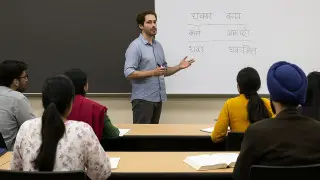
Freepik
In a groundbreaking development in the realm of technology and spirituality, a recent claim suggests a revolutionary breakthrough: the ability to converse with deceased loved ones. This intriguing possibility stems from advancements in artificial intelligence and natural language processing.
Researchers purportedly developed a system that can reconstruct conversational responses from deceased individuals based on their digital footprint. This system reportedly analyzes extensive data, such as social media posts, emails, and other digital communications left behind by the departed.
Using sophisticated algorithms, the technology recreates responses in the voice and mannerisms characteristic of the deceased. Advocates of this technology argue that it offers solace to those grieving and longing for closure. However, this innovation also raises profound ethical questions. Critics express concerns about the potential emotional impact on users and the sanctity of memory and mourning.
Actually, MyWishes allows you to stay in the lives of the living while sending pre-written messages after death. Robotic busts made by Hanson Robotics may interact with humans by utilizing their memories and character attributes. Through Project December, users can converse textually with deceased individuals by utilizing so-called "deep AI." In the field of digital afterlife, generative AI is equally crucial. Digital personalities that are highly lifelike and engaging can be created thanks to these technologies.
Technology has advantages, but it also has drawbacks. The distinction between simulation and reality may become hazy due to the intense realism. While this may improve the user experience, it may also be distressing emotionally and psychologically. By enabling continuity and a link with the deceased, digital afterlife technologies can facilitate the grieving process. Seeing a loved one's image or hearing their voice can bring comfort and aid in grieving.
These virtual immortals can be helpful therapeutic tools for some of us. They can support us in holding onto happy memories and maintaining a sense of connection with departed loved ones. However, for some people, the emotional effects can be extremely detrimental, which can make grieving worse rather than better.
Scientists caution against embracing such claims without rigorous peer-reviewed validation. They underscore the need for transparent methodologies and ethical considerations in developing and deploying such technologies.













Copyright © 2025 Top Indian News
